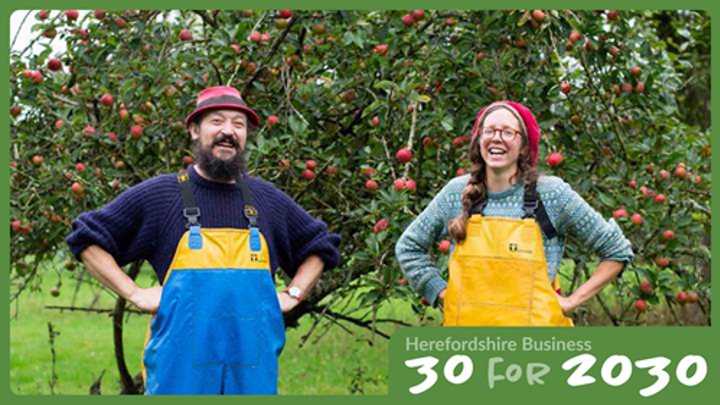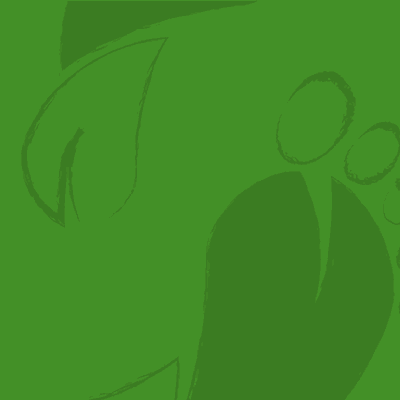
Artistraw Cider
Who
Previously based in Germany and London, newlyweds and committed environmentalists Tom Tibbits and Lydia Crimp were looking for something to do as a husband-and-wife team that wouldn't have a negative impact on the planet.
"It was serendipity really," says Tom, a former renewable energy specialist. "A cousin lent us a house in Herefordshire and we made our first batch of cider from her orchard."
After winning acclaim in an amateur cider-making competition, the couple decided to take the plunge and set up a natural cidery and orchard in the beautiful Wye Valley in 2017.
Why they signed up
After years of taking part in environmental protests, the couple heard about the '30 for 2030' at a chance meeting with Cllr Chowns, former chair of the Herefordshire Climate and Nature Partnership.
"We decided it was time to stand up and be counted," says Tom. "Global carbon emissions are currently at 3 gigatonnes a month. We have 100 months to turn things around if we want to limit global warming and save the planet – if that doesn't galvanise you for action, I don't know what will."
Steps taken
Unlike large-scale commercial cider producers, Artistraw Cider uses only apples from traditional low-intensity orchards. Tom and Lydia seek out local orchards that have been neglected and try to bring them back into use.
These 'standard orchards' benefit from a natural pest resilient ecosystem which means that the apples can be grown without fertiliser. Although this less dense method of farming results in lower productivity, it produces higher quality fruit which can be pressed and fermented slowly at a cold temperature, without the need for any additives. The process takes about 18 months to 2 years, with occasional tastings required to check whether the flavour has matured (every job has its downsides!).
The result, say Tom and Lydia, is a great tasting natural cider, produced with minimal environmental impact and sold across the UK.
Journey to net zero
The couple carry out an annual carbon audit to measure Artistraw's emissions and identify areas for improvement. Their latest audit revealed that one third of the company's emissions come from the glass cider bottles – because they are broken down for recycling, rather than being reused.
Recycling is an energy-intensive process and reuse could save vast amounts of carbon, but it is largely outside the company's control because many of the bottles are sold in other parts of the country.
This year Tom and Lydia are hoping to sell more through their market stall in Hay, which will both reduce emissions from transport and mean that customers can return bottles. They also have plans to convert their 1930s bungalow into a more sustainable home and workspace using low impact building materials.
In their own words
"The business community has to lead on this because it's an existential threat - we can't sit around waiting for others to act. We are doing everything we can to reduce our impact on the planet and we are keen to inspire others to do the same."

